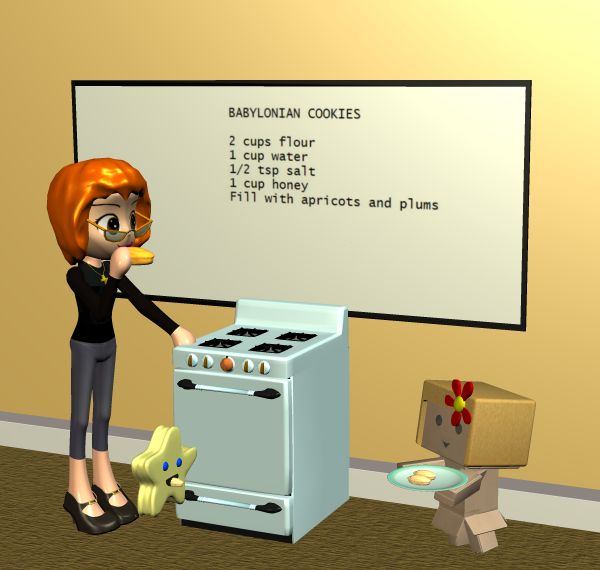Saturday, April 03, 2021
Reprint on auts and krauts
Mentioning autists and Krautists in previous item reminded me of this 2019 defense of a "woke" math movement.
= = = = = START REPRINT:
This academic movement is more important and more valid than it sounds.
First, how it sounds:
 After you solve the problem, you can eat the solution.
Back to Chinyoka:
After you solve the problem, you can eat the solution.
Back to Chinyoka:
Since apartheid ended in 1994, South Africa’s universities have struggled to transform themselves, leading to escalating student protests over the last three years — including the toppling of a prominent statue of Cecil Rhodes, an infamous colonizer who donated the land on which the University of Cape Town now stands. And as students and academics accelerate the process of decolonization across South African universities, the spotlight has fallen onto mathematics. Exactly what decolonizing math would entail isn’t entirely clear: Curriculum revisions that promote non-Western contributions to the field, new teaching methods rooted in indigenous cultures, and greater openness to ideas outside the academic mainstream are all under discussion. Some want to go further, challenging the philosophical foundations** of mathematics itself.Sounds like the usual SJW crap. But the actual leader of the movement is onto something entirely different and hugely more important.
In his evening classes, meanwhile, Chinyoka hopes to broaden students’ understanding of what they can do with the mathematics they are presented with in lectures — from engineering to academia to law. He believes that South African mathematics should be reframed around the challenges faced by South Africa, as well as other developing countries.In fact Chinyoka is not going far enough in the correct direction. He's treating the real life problems as a supplement after the theory. This is somewhat better than the normal math class which PROHIBITS any mention of the real world. The CORRECT method is to train students in real job-related or household-related solving, and let math come in naturally as a supplement. You're starting to cook a meal for your family. You set out the pans and read the recipe. The recipe is for 4 people but your family is 6 people. Now we have a problem that needs to be solved, and math provides a way to solve it.
 After you solve the problem, you can eat the solution.
Back to Chinyoka:
After you solve the problem, you can eat the solution.
Back to Chinyoka:
“We still have this more Westernized view: You sit in a mathematics class on topology or abstract algebra, with zero idea about which context it applies to,” he says. Pointing to the current water and energy crises in South Africa, he argues that math should be taught with concrete applications in mind, rather than purely theoretically, which is a luxury afforded only by the West.Not really a Westernized view, more precisely a Krautized view. Before we surrendered to the Krauts, US math and science teaching often had "concrete applications in mind". Around 1910 we went full Kraut. Theory in the morning, theory in the evening, theory at suppertime, concrete applications verboten all the time. Soviet math and science teaching recovered from Krautism, focusing PROPERLY on real-life problem solving. That's why they beat us with Sputnik. As always we learned backwards. Fucking idiots. Chinyoka is on the right track. His approach is better for ALL kids except autists and Krautists. Western math is SOLELY for autists and Krautists. The EXPLICITLY STATED PURPOSE of math class in elementary and secondary school is to FRUSTRATE AND REPEL non-autists, so only the most precise and bizarre and reality-free wackos will end up with PhDs. Unfortunately the movement toward USEFUL APPLICATIONS is confused and conflated with silly DieVersitarian nonsense. Many of the participants are more concerned with measuring Identity than measuring rice yield or baking temperatures or generator output. They are simply replacing one set of useless theories with another set of useless theories. = = = = = ** Footnote: there's no point in challenging the philosophical foundations of math because they don't exist. A real foundation goes in FIRST, and the rest of the building depends on the strength of the foundation. Math developed in all sorts of useful and interesting directions for 5000 years WITHOUT explicit foundations. Around 1880 the Kraut fetish for thoroughness demanded a "logical" foundation, and Krauts shoved in some logic stuff under the massive structure that obviously didn't need the logic stuff. Soon thereafter, a Kraut named Gödel detemined, using the rules of the Kraut logic stuff, that the logic stuff was internally contradictory and thus pointless. So: If you believe that math has philosophical foundations, you must also believe that math can't have philosophical foundations. If you find math to be a wonderfully useful tool for real life problems, you don't need to think about the foundation question. Just use math. = = = = = END REPRINT. I can't immediately find any more recent writings by Tiri Chinyoka, except for an applied math research paper that isn't about education.
Labels: Carver, Experiential education, Real World Math
